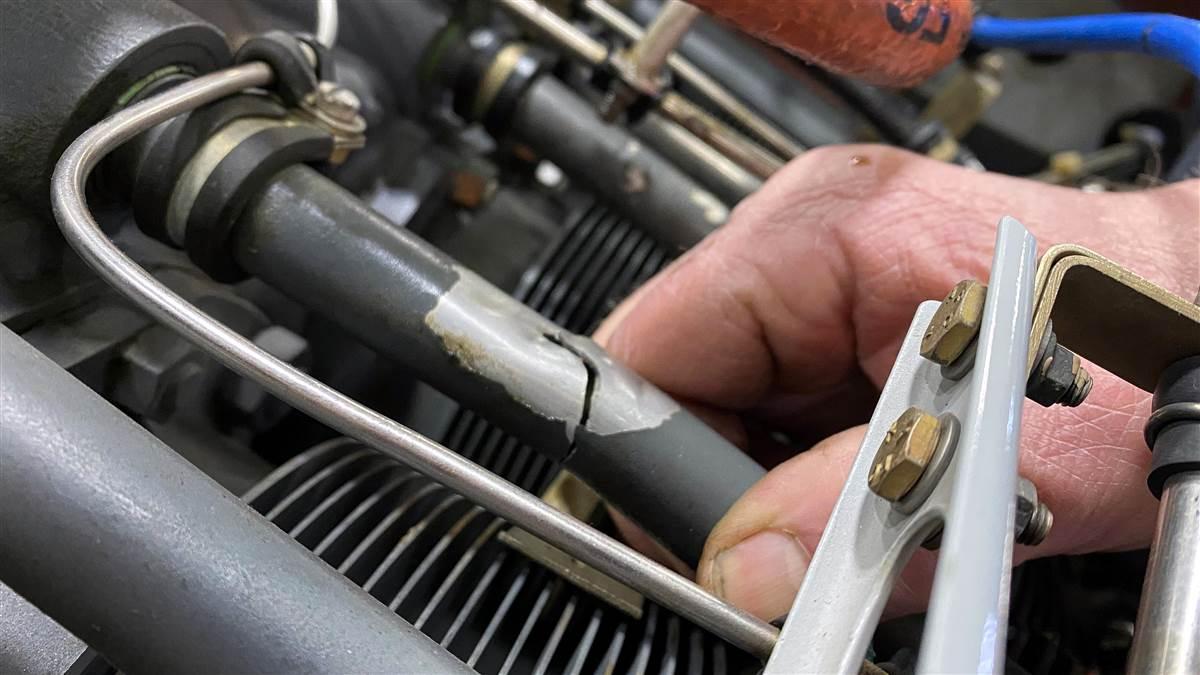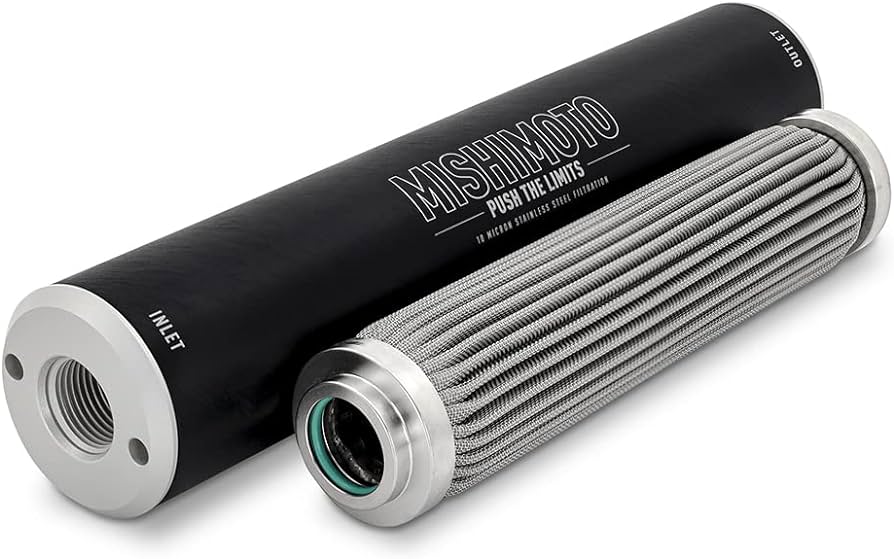A Faulty Muffler Can Cause Catastrophic Engine Damage
A faulty muffler can cause several issues, such as reduced engine performance and increased fuel consumption.
Understanding The Importance Of A Well-functioning Muffler
A faulty muffler can cause various problems in a vehicle. Understanding the importance of a well-functioning muffler is crucial for ensuring the proper performance of the exhaust system. The muffler plays a significant role in reducing noise and emissions by dampening the sound and directing the exhaust gases out of the vehicle. It achieves this through a series of key components, including the resonator, baffle, and perforated tubes.
The resonator is responsible for reducing certain frequencies of sound waves, while the baffle serves to redirect the exhaust gases and further minimize noise. Perforated tubes allow the exhaust gases to flow through while providing additional noise attenuation. All these components work together to ensure efficient sound reduction and help maintain the vehicle’s performance. Regular maintenance and inspection of the muffler are essential to identify any issues and prevent potential damage to the exhaust system.
Recognizing The Signs Of A Faulty Muffler
A faulty muffler can cause various issues that can negatively impact the performance of your vehicle. One of the most common signs of a faulty muffler is the presence of unusual noises coming from the exhaust system. These noises can range from loud rumbling sounds to high-pitched squealing or hissing sounds.
Another indication of a faulty muffler is the color and consistency of the exhaust smoke. If you notice thick black, gray, or blue smoke coming from your exhaust pipe, it could be a sign that your muffler needs attention.
In addition to the noises and smoke, a faulty muffler can also lead to decreased fuel efficiency and engine performance. If you find yourself needing to refuel more often than usual or experiencing a noticeable decrease in power and acceleration, it may be time to have your muffler inspected and repaired.
The Consequences Of Ignoring A Faulty Muffler
A faulty muffler can have serious consequences for both your vehicle and your health. Ignoring the problem can lead to potential engine damage and negative impacts on other exhaust system components.
When a muffler malfunctions, it fails to effectively dampen the noise and vibrations produced by the exhaust gases. As a result, the engine may suffer from decreased performance and increased fuel consumption. This can eventually lead to more significant and costly engine issues.
Furthermore, a faulty muffler can negatively affect other components of the exhaust system, such as the catalytic converter and oxygen sensors. These components play a crucial role in reducing harmful emissions and maintaining the overall efficiency of the engine. Therefore, ignoring a faulty muffler can escalate into more extensive repairs.
Moreover, a faulty muffler increases the risk of toxic fume inhalation. The exhaust gases emitted from a malfunctioning muffler contain carbon monoxide and other harmful substances. Prolonged exposure to these fumes can be detrimental to your health and can cause symptoms like headaches, dizziness, and nausea.
Considering the potential engine damage, negative impact on other exhaust system components, and the risk of toxic fume inhalation, it is crucial to address any issues with your muffler promptly. Regular maintenance and inspections can help identify and resolve problems early on, ensuring the safety and performance of your vehicle.

Credit: www.aopa.org
Understanding The Causes Of Muffler Failure
A faulty muffler can cause various issues and understanding the causes of muffler failure is important for maintaining the overall functionality of the vehicle. One common cause of muffler failure is normal wear and tear over time. As the muffler is constantly exposed to high temperatures and exhaust gases, it can deteriorate and become less effective over the years.
Rust and corrosion are also common culprits of muffler failure. Moisture and road salt can cause the metal parts of the muffler to rust, leading to holes and leaks. Regular exposure to these elements can significantly decrease the lifespan of the muffler.
Another cause of muffler failure is impact damage. Debris on the road or speed bumps can hit the muffler, causing dents or cracks. These damages can impair the performance of the muffler, leading to increased noise and reduced overall efficiency.
Addressing A Faulty Muffler: Repair Vs. Replacement
htmlA faulty muffler can lead to various issues in your vehicle’s exhaust system. Repairs can often be a viable option, depending on the extent of the damage. When determining whether to opt for repairs or replacement, several factors should be taken into consideration. These include the age of the muffler, the severity of the damage, and the cost of repairs versus replacement. Professional expertise is crucial in making an informed decision regarding muffler repairs. Their experience and knowledge ensure that the repairs are effective and provide a long-term solution. Furthermore, professional technicians can accurately diagnose the issue and suggest the most appropriate course of action, reducing the likelihood of further complications. Whether it’s a minor repair or a full replacement, addressing a faulty muffler promptly is essential to avoid compromising your vehicle’s performance and complying with emission regulations.
Preventive Maintenance Tips For A Healthy Muffler And Engine
A faulty muffler can cause serious damage to your engine if left unchecked. That’s why it’s important to follow preventive maintenance tips to ensure a healthy muffler and engine. Regular inspection of the exhaust system is crucial in identifying any leaks or cracks in the muffler, as well as other components like the catalytic converter and exhaust pipes. Cleaning and maintenance of the muffler and exhaust pipes help remove any built-up debris or rust that can affect their performance.
Proper driving habits also play a role in minimizing muffler and engine stress. Avoiding rapid acceleration and aggressive driving reduces the strain on the engine and exhaust system. Additionally, using the correct fuel grade recommended by your vehicle’s manufacturer can prevent fuel combustion issues that may lead to muffler damage.
Remember, a healthy muffler is essential for the overall well-being of your engine. By following these preventive maintenance tips, you can keep your muffler functioning properly and avoid costly repairs down the line.
Conclusion: Taking Action To Protect Your Engine
A faulty muffler can cause serious issues for your engine if left unaddressed. It is crucial to promptly address any muffler issues to protect the longevity and performance of your engine.
By maintaining a well-functioning muffler, you can potentially save on costly repairs down the line. A faulty muffler can lead to an increase in fuel consumption and decreased engine efficiency. The muffler plays an important role in reducing noise and controlling emissions, so it is vital to keep it in good condition.
Regular maintenance and inspections can help identify any issues with your muffler early on. Look out for signs such as loud noises, rust or holes in the muffler, or a decrease in engine performance. If you notice any of these indicators, it is essential to take action and have your muffler repaired or replaced as soon as possible.
Don’t wait until a faulty muffler causes further damage to your engine. Stay proactive and address any muffler issues promptly to ensure the longevity and performance of your engine.
Frequently Asked Questions On A Faulty Muffler Can Cause
Can A Bad Muffler Cause A Misfire?
A bad muffler does not directly cause a misfire in the engine. However, it can affect the overall performance of the exhaust system, leading to issues such as reduced engine power, poor fuel efficiency, and potential damage to spark plugs or ignition coils.
What Are The Symptoms Of A Clogged Muffler?
Symptoms of a clogged muffler include reduced engine performance, excessive noise, and visible exhaust smoke. Additionally, a foul odor may be present, and the vehicle may experience difficulty starting or idling. A clogged muffler can restrict the flow of exhaust gases, leading to various issues.
What Noise Does A Bad Muffler Make?
A bad muffler can make a loud rumbling or rattling noise. It may sound like something is dragging or loose underneath the vehicle.
Can A Muffler Leak Cause Problems?
Yes, a muffler leak can cause problems. It can affect your vehicle’s performance, decrease fuel efficiency, and make the exhaust system louder. Additionally, a muffler leak may lead to harmful gas emissions entering the car’s cabin, which can be dangerous for passengers.
It’s important to address any muffler leaks promptly to avoid further issues.
Conclusion
A faulty muffler can lead to various problems for your vehicle. Not only can it disrupt the overall performance and fuel efficiency, but it can also result in increased emissions and noise pollution. It is crucial to address any muffler issues promptly to ensure the smooth running of your car and to minimize any adverse effects on the environment.
Proper maintenance and regular inspections can help prevent these issues and extend the life of your muffler.






